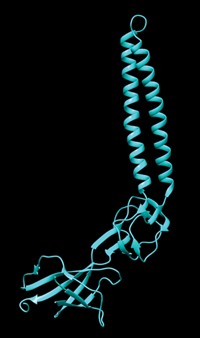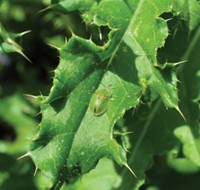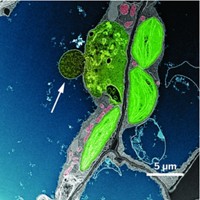Advertisement
Grab your lab coat. Let's get started
Welcome!
Welcome!
Create an account below to get 6 C&EN articles per month, receive newsletters and more - all free.
It seems this is your first time logging in online. Please enter the following information to continue.
As an ACS member you automatically get access to this site. All we need is few more details to create your reading experience.
Not you? Sign in with a different account.
Not you? Sign in with a different account.
ERROR 1
ERROR 1
ERROR 2
ERROR 2
ERROR 2
ERROR 2
ERROR 2
Password and Confirm password must match.
If you have an ACS member number, please enter it here so we can link this account to your membership. (optional)
ERROR 2
ACS values your privacy. By submitting your information, you are gaining access to C&EN and subscribing to our weekly newsletter. We use the information you provide to make your reading experience better, and we will never sell your data to third party members.
Biotechnology
Heavy water causes yeast to build cell wall in overdrive
Researchers pinpoint how cells respond to an unusual stressor
by Alla Katsnelson, special to C&EN
April 23, 2020

Water is essential for all living things to survive. But not any water will do. When its hydrogen atoms are substituted by deuterium—the naturally occurring hydrogen isotope with both a proton and a neutron in its nucleus rather than just a proton—this heavy water (D2O) stunts the growth of most organisms. Researchers now report that fission yeast, Schizosaccharomyces pombe, grows poorly in D2O because D2O drives the one-celled organism to beef up its cell wall. Strains of S. pombe with mutations in the pathway responsible for this fortification grew in D2O just fine, the researchers found (ACS Synth. Biol., 2020 DOI: 10.1021/acssynbio.9b00376). Such mutants unaffected by D2O could be useful for producing deuterium-labeled proteins for research.
Rasmus Hartmann-Petersen, a biologist at the University of Copenhagen, and his colleagues started exploring how S. pombe grows in D2O on a lark. Unlike bacteria, which can adapt to increasing D2O concentrations, S. pombe cells cannot, the team found. S. pombe cells grown in D2O don’t die–they just don’t multiply. Their cell walls grow, however–they get thicker.
“The cell wall is basically the skin of the cell, to protect it from the environment,” says Hartmann-Petersen. “If there is some sort of stress condition, then the cell will activate this pathway to make a more thick cell wall.”
In order to screen for genes that help S. pombe adapt to D2O, Hartmann-Petersen and his colleagues then created mutant strains missing individual genes and looked for those that grew better in D2O than in regular water. They identified four genes–all key components of a cellular signaling pathway that controls the integrity of the cell wall.
The clear identification of the cell integrity pathway is interesting, says Katerina Bisova, a microbiologist at the Czech Academy of Sciences. The study “unravels some specific genes making cells more resistant/sensitive to D2O,” she says.
Researchers sometimes use D2O to label proteins they are studying in order to follow track them as they go about their cellular business. Most often they produce them in the bacterium Escherichia coli, which adapts to D2O well. But some proteins must be produced in eukaryotic cells, like yeast–so it may be possible to make them in S. pombe cells carrying these mutations, he says.





Join the conversation
Contact the reporter
Submit a Letter to the Editor for publication
Engage with us on Twitter